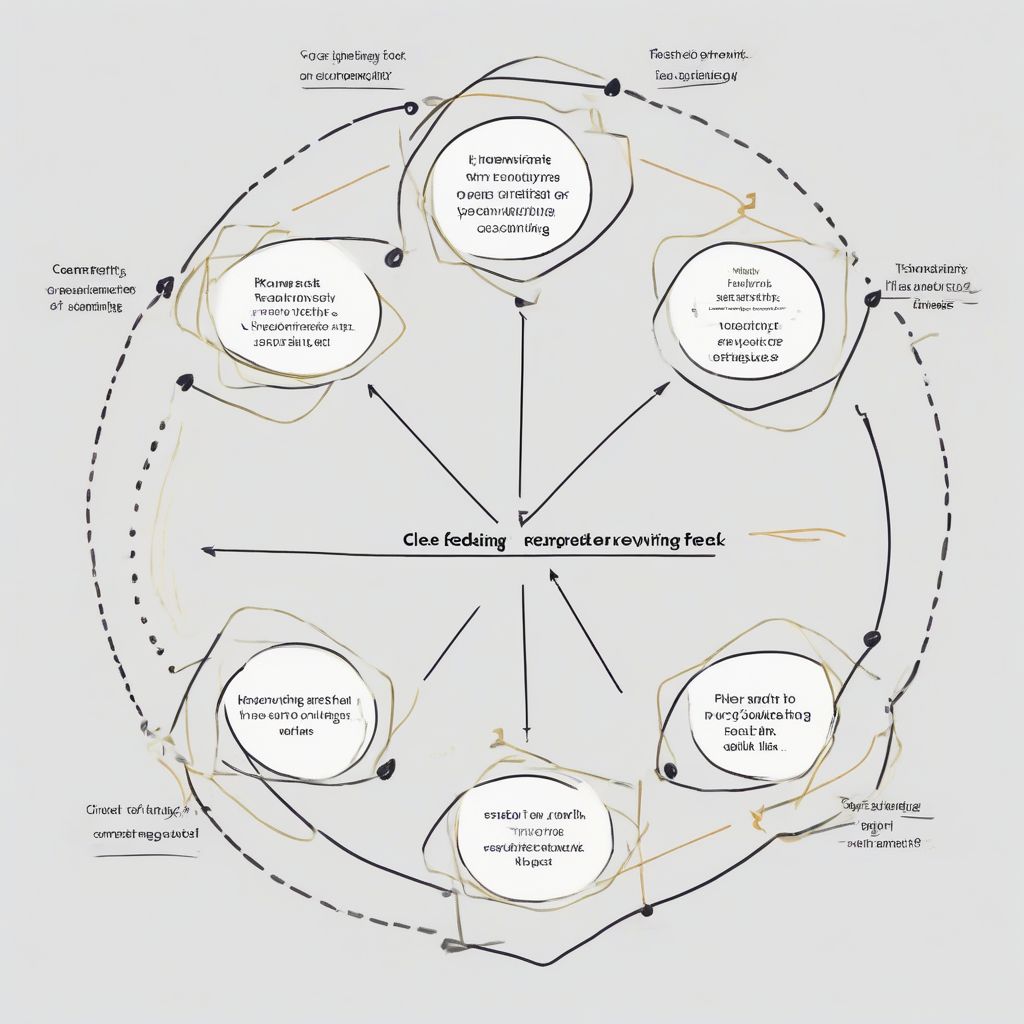We’ve all been there: staring at a blinking cursor, agonizing over every word. Was that sentence clear? Did that paragraph make sense? Is this really my best work?
As a nutritionist and meal-prep coach who’s passionate about clear communication, I understand the power of feedback. Just like a personal trainer helps you reach your fitness goals, feedback on your writing can take your skills to the next level.
But here’s the catch: not all feedback is created equal. Knowing how to use feedback effectively is the key to unlocking your full writing potential.
This article will explore proven strategies to help you embrace feedback and use it to transform your writing from good to great.
Why Feedback is Your Secret Weapon to Writing Success
Think of feedback as a GPS for your writing. It helps you navigate the often-treacherous path to clear, compelling, and impactful writing.
Here’s why actively seeking and effectively using feedback is crucial:
- Identifies Blind Spots: We’re often too close to our writing to see its flaws. Feedback provides an objective perspective, highlighting areas that might be confusing, unconvincing, or just plain boring.
- Strengthens Your Writing Muscles: Just like regular exercise builds physical strength, consistently applying feedback strengthens your writing “muscles.” You’ll start to recognize and correct common errors, leading to more polished and professional work.
- Boosts Confidence: There’s nothing more empowering than seeing your writing improve over time. Constructive feedback helps you identify your strengths and weaknesses, giving you the confidence to tackle more challenging writing projects.
Mastering the Art of Receiving Feedback
The first step to using feedback effectively is learning how to receive it with an open mind and a growth mindset.
- Check Your Ego at the Door: Remember, feedback on your writing isn’t a personal attack. It’s an opportunity to learn and grow.
- Embrace the Discomfort: It’s natural to feel a little defensive when receiving criticism. But try to approach the feedback with curiosity rather than defensiveness.
- Ask Clarifying Questions: Don’t be afraid to ask for clarification if something isn’t clear. A simple, “Can you elaborate on what you meant by…?” can go a long way.
- Don’t Take It Personally: Not all feedback will resonate with you, and that’s okay. Take what’s helpful and leave the rest.
Turning Feedback into Actionable Steps
Now that you’ve received feedback, it’s time to put it into action.
1. Identify the Recurring Themes:
- Are there any consistent patterns in the feedback you receive? Perhaps you tend to overuse adverbs, or your sentence structure is often convoluted.
- Recognizing these patterns helps you focus your improvement efforts.
2. Prioritize the Most Impactful Changes:
- Not all feedback carries the same weight. Focus on addressing the issues that will have the biggest impact on your writing’s clarity and effectiveness.
- If multiple readers stumble over the same sentence, it’s a clear sign to rework it.
3. Break It Down into Manageable Steps:
- Rome wasn’t built in a day, and your writing won’t magically transform overnight. Break down the feedback into smaller, more manageable goals.
4. Practice Makes Progress:
- The more you write and actively apply the feedback, the more natural these changes will become.
 Feedback Writing Cycle
Feedback Writing Cycle
Seeking Out Valuable Feedback
Of course, the quality of the feedback you receive directly impacts its usefulness. Here are some tips for finding valuable feedback:
1. Choose Your Feedback Sources Wisely:
- Writing Groups and Workshops: These provide a supportive environment to share your work and receive constructive criticism from fellow writers.
- Beta Readers: Finding readers from your target audience can offer valuable insights into how your writing resonates with them.
- Online Writing Communities: Websites like Reddit’s r/writing offer platforms to connect with fellow writers and exchange feedback.
2. Be Specific with Your Requests:
- Instead of a generic, “Tell me what you think,” ask targeted questions.
- For example, you might ask, “Is the main argument of this essay clear?” or “Does this dialogue sound natural?”
3. Embrace Different Perspectives:
- Don’t be afraid to seek feedback from people with diverse backgrounds and writing styles.
- Different perspectives can offer unique insights and help you appeal to a broader audience.
Conclusion: Embracing the Journey of Continuous Improvement
Remember, becoming a skilled writer is an ongoing journey, not a destination. By actively seeking and effectively using feedback, you’ll continuously refine your writing, captivate your readers, and achieve your writing goals.
Now it’s your turn! What are some strategies you use to incorporate feedback into your writing process? Share your thoughts and experiences in the comments below.
[amazon bestseller=”writing feedback”]
